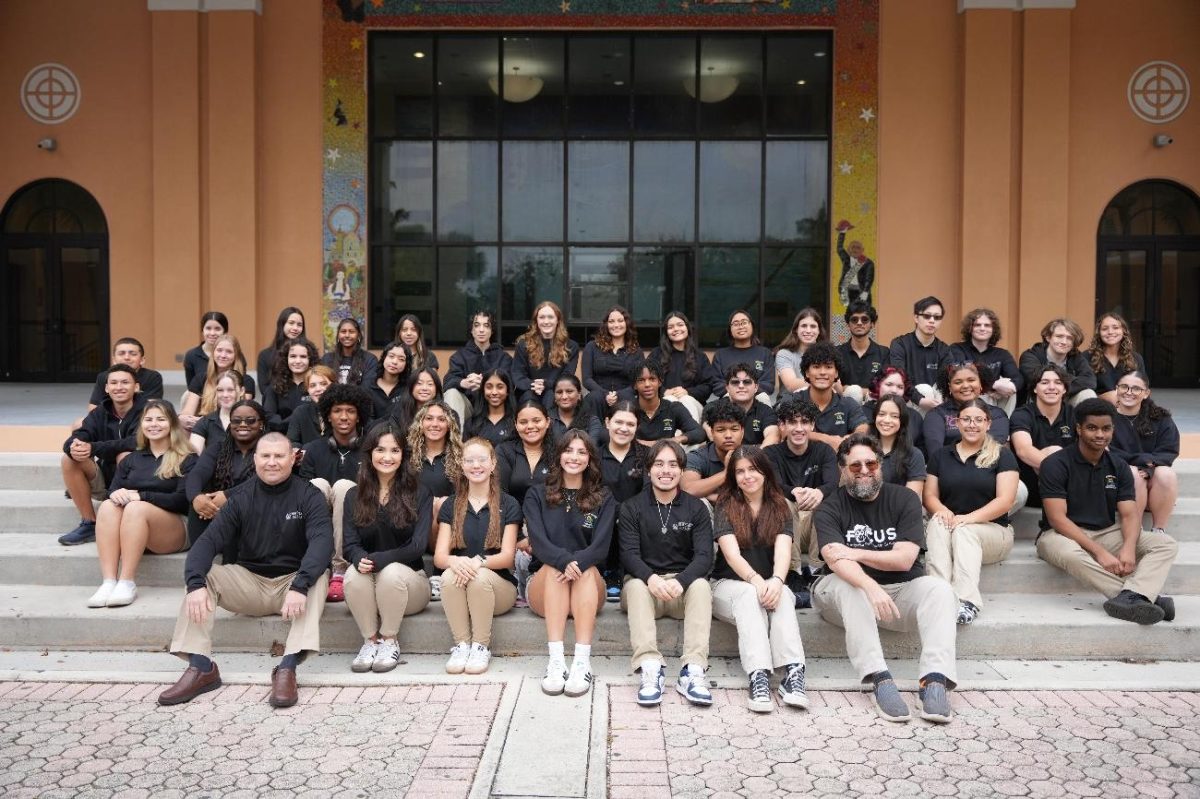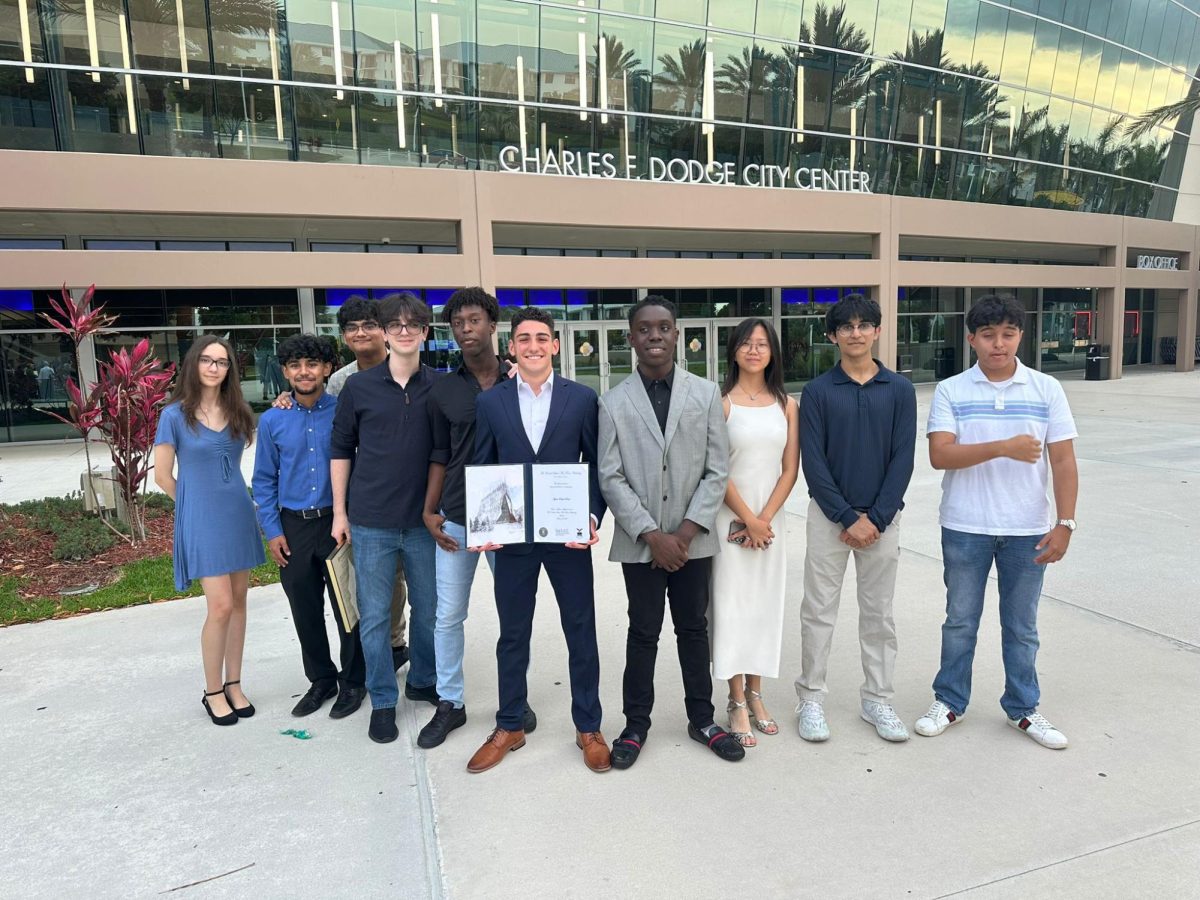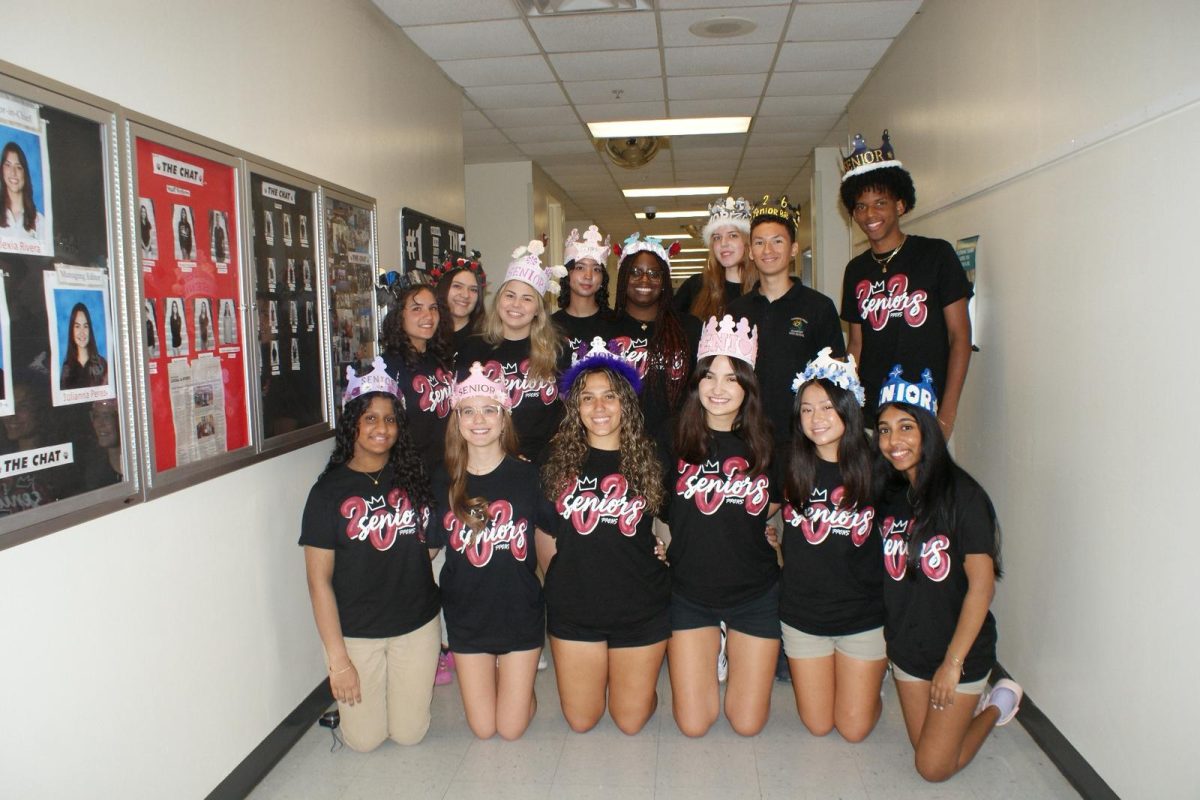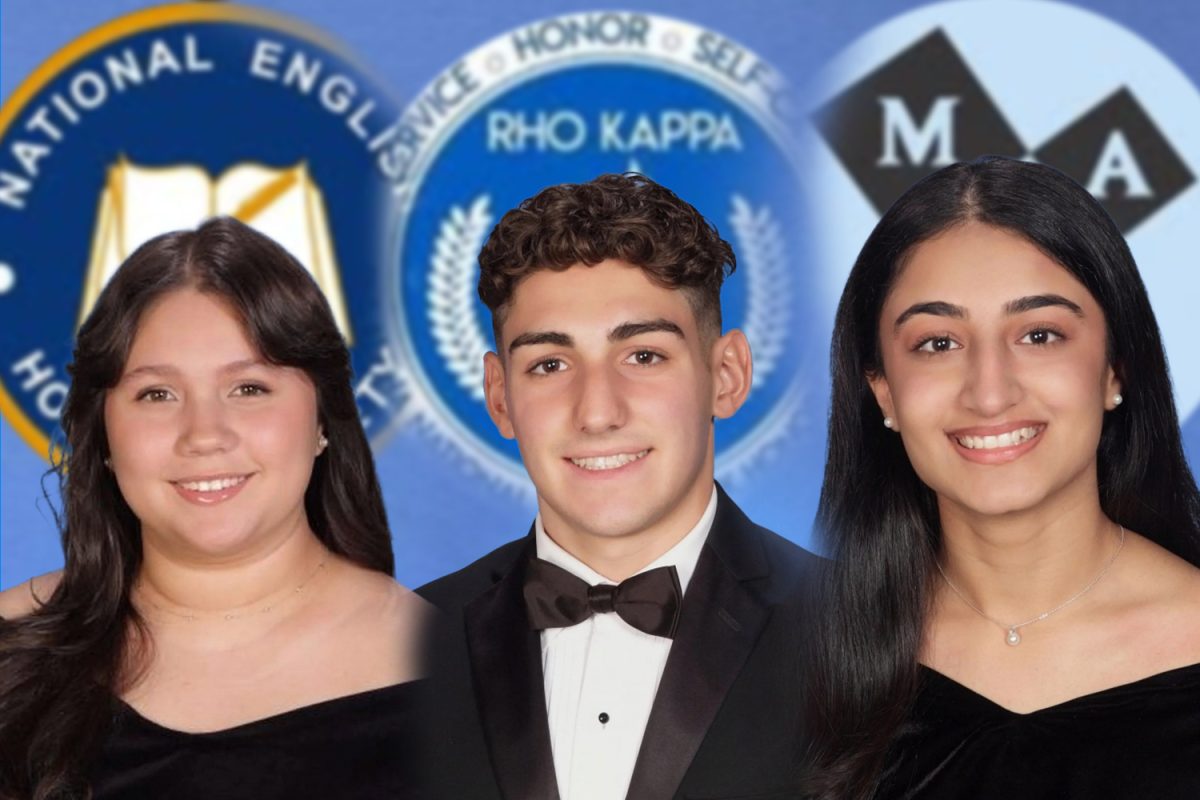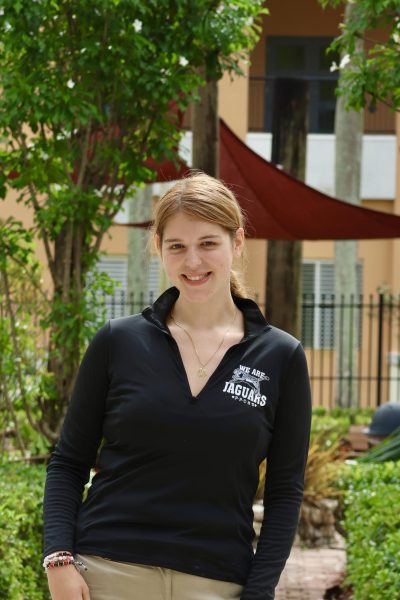In most American classes, Psychology students are usually simply writing about past research projects conducted in the 20th and 21st centuries. The Cambridge program takes this to the next level, encouraging students to conduct creative studies of their own! Students in AICE Psych were put to the task of curating thorough research studies, proving or disproving their hypotheses while cracking down on methodology and ethics.
Mrs. Palacio, the AICE Psychcology Instructor, has been a staff member on campus for 5 years now, originally teaching PRE-AICE Global, one social studies class, and AICE Psych. Eventually, Palacio shifted to AICE Psych, teaching both AS and A level. One of Palacio’s favorite aspects of AICE Psych is her ability to expand upon viewpoints and experiences. “It’s educating and helping [students] understand why we think the way we do. Especially in [students] age group, all of [them] have different ways of thinking, different capacities, and sometimes it can feel isolating. It’s not something we always talk about.”
According to Palacio, students were given a three-week deadline to conduct their research. The process began with a vital decision among students, as to whether they wanted to work alone or in a group. If a student chose to work in a group, they would have to work with a maximum of 3 members. In a group or alone, the students themselves came up with their own study. Which meant they would brainstorm a unique, highly plausible idea, take data across the school, and present their conclusion to the class.
Although self-conducted studies are necessary to perform well in the class, Palacio believes there are more benefits to this than just a satisfactory grade. “I teach students how to create studies because I feel like if they know that skill, they’ll think like researchers and with that, understand the course better.” Palacio says.
With creative freedom to research whatever they desire, her students took off. They followed the structure of an experimental method, experimental design, and a sample method. While completing their study, students were left to ask themselves if the components of their study represented dependent variables or independent variables. Overall, their findings would be showcased in a presentation in front of the class.
One group in particular had the D building hallways lined up with students. Juniors Xavier Reid Morgan, Angelo Lesmes, and Diego Padilla set a task to determine the IQ levels among Charter’s English/Literary classes. “We were mainly just planning for about a couple days and then last week we were just going around collecting samples, asking teachers if we could do research,” Morgan inputs. They pulled ten students from AICE English Literature, AICE English Language, English Honors, English Regular, and Intensive English. Morgan hypothesized that if the class was lower in rigor, their IQ would also be low, and if the class was higher in rigor, the IQ of those students would be higher. When the group reviewed their results, their findings both aligned and contrasted with their initial hypotheses.
“Some English classes scored higher IQ, like Regular English through Honors got a lot higher than AICE Literature. Intensive Reading did a lot better than English through Regular.” Morgan noted. Palacio commented on the study, expressing that this could be a result of students being pushed into Intensive English depending on their score on the FAST. According to his group partner, Angelo Lesmes, the group had visited six classes but ended up only using five of the classes’ results due to distraction.
That being said, it is up to the researcher to interpret their results and account for any factors that affect accuracy, overall deciding whether or not to include them in their research. For Senior Jamie Verdul’s study, lying was an essential part of research. Verdul says, “We conducted a study on testing how well students can critically think under pressure. We gave them a test under three different time constraints, five minutes, 10 minutes, and an unlimited time.” She and her group worked with a class of 27 kids. 20 out of the 27 kids said to have read instructions (the instructions being to answer D for all four questions).
In reality, only 12 of the students followed instructions. Verdul remarks that her subjects’ lies have a stagnant effect on her results. “I wouldn’t say it has an effect on my research, my research has an effect on them.” This is why Palacio has put so much effort into shaping her students into respectful researchers. “If I’m mean to you, you are less likely to assist me with my research. When I am kind and approach people respectfully, people will be more inclined to work with me. A key way to be a good researcher is to understand the way people see you,” Verdul noted.
Students took on the roles of researchers; designing studies, collecting data, and analyzing results – all while grappling with issues of ethics, bias, and accuracy. Rather than just studying past research, students are challenged to conduct their own original research studies, gaining hands-on experience in the scientific method and research process. This approach not only helps students better understand the course material but also develops critical thinking and problem-solving skills that will serve them well in their future academic and professional pursuits.
Morgan, who plans to be a psychologist in the future expresses, “I think psychology is really interesting, and it helps us to learn more about human behavior, and how humans think, and things like that, and I think it’s really cool.” Overall, the self-conducted studies demonstrate the depth and rigor of this program, setting AICE Psychology students up for success both in and beyond the classroom.


